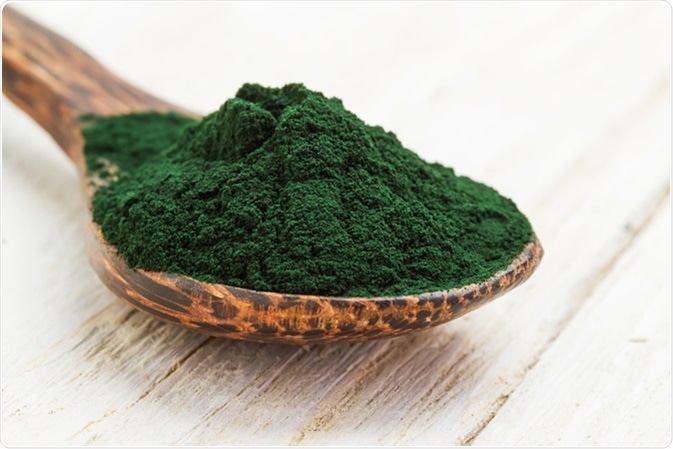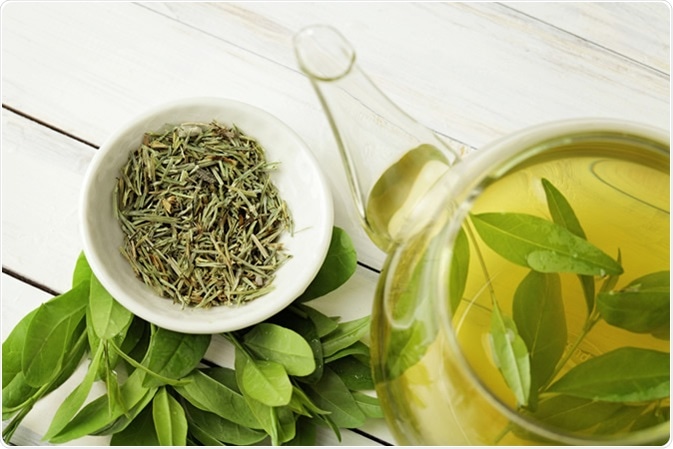Skip to:
- What are the natural remedies for treating seasonal allergies?
- Nasal irrigation
- Acupuncture
- Probiotics
- Spirulina
- Honey
- Green tea

Allergies arise when the body's immune system reacts to substances termed allergens. Allergens are foreign substances which triggers an allergic reaction.
Allergens are usually harmless in most people; however, they may have considerable impact on the life of people sensitive to them. In some cases, severe allergic reactions may be life-threatening.
Following are some commonly found allergens:
- Pollen
- House dust mites
- Proteins shed or excreted by pets
- Stings and bites
- Food such as peanuts, eggs, shellfish, soy
- Medications
- Contact allergens like metals or fragrance ingredients
- Molds
Allergic reactions mostly affect the skin, airways and mucous membranes. The symptoms are usually observed within minutes; however, in some cases it may take a few hours or days to develop.
Runny nose, coughing, sneezing and breathing problems are common symptoms associated with allergies. Allergic reactions may also cause watery eyes, itching, rashes and stomach and bowel problems.
What are the natural remedies for treating seasonal allergies?
Avoiding the allergens is the best way to prevent an allergic reaction. Even though it’s easy to avoid contact with allergy causing foods or chemicals, it’s almost impossible to avoid allergens such as pollen and dust-mites.
Medications such as antihistamines and steroids are commonly used to treat the allergic symptoms; however, in recent years, natural remedies have gained popularity for various medical and economic reasons.
Nasal irrigation – Nasal irrigation with saline water can be used as an adjunctive treatment in allergic rhinitis. The nonpharmacologic method is routinely recommended in acute and chronic rhinosinusitis and for therapy after sinonasal surgery. Nasal irrigation has a proven clinical efficacy and is a well-tolerated, inexpensive treatment option. The method is easy to use and does not cause any unexpected side effects. Patients should ask a healthcare provider how to perform this properly, as use of unclean water or sharing of equipment can put a person at risk for infection.

Acupuncture – As acupuncture has been shown to modulate the immune system, and it has shown some benefit in improving quality of life for patients with allergic rhinitis.
Probiotics – Probiotics have also shown some utility in allergic diseases. Several trials have found beneficial effects of probiotics in improving symptoms and quality of life in allergic rhinitis. However, there is a need for additional studies to establish appropriate guidance for the use of probiotics in allergic conditions.
Spirulina – Spirulina are widely used as dietary supplements. They are a type of alga with immune modulating functions. The role of spirulina in allergic rhinitis has been assessed in a randomized clinical trial that examined the ability of spirulina to produce cytokines, a critical molecule in regulating immunoglobulin E-mediated allergy. The study found that spirulina demonstrates protective effects towards allergic rhinitis and hence may be a viable option for the treatment of allergies.

Honey – Honey is widely used worldwide for various healing purposes. Honey due to its anti-inflammatory properties is commonly used to alleviate symptoms of allergic rhinitis. As per a study published in 2013 in the journal Annals of Saudi Medicine, consuming honey at a high dose improves the overall and individual symptoms of allergic rhinitis, and thus could serve as a complementary therapy for allergic rhinitis.
Ingesting raw, locally sourced honey is thought to be beneficial because the honey is likely to contain local allergens. Long-term allergen exposure in small quantities is one strategy that has been widely used to help patients desensitize to environmental allergens like pollen. Imported honey is less likely to contain local allergens, and the ability to determine honeybees’ exposure to pesticide on nectar plants is difficult to determine.
Green tea – Green tea is another promising anti-allergenic agent. A randomized clinical study of ‘benifuuki’ green tea as treatment for seasonal allergies showed that drinking green tea containing O-methylated catechin markedly improved the symptoms of allergic rhinitis.

Millions of people worldwide suffer from some type of allergy. Even though there are many natural remedies to treat seasonal allergies, it is always best to see the physician for the best advice. Avoiding exposure to the suspected allergens is the best strategy. Exercise and proper diets may also help to alleviate the effect of allergies.
Sources
- Maeda-Yamamoto M, et al. (2009). The efficacy of early treatment of seasonal allergic rhinitis with benifuuki green tea containing O-methylated catechin before pollen exposure: an open randomized study. Allergol Int.58(3):437-44. doi: 10.2332/allergolint.08-OA-0066. https://www.sciencedirect.com/science/article/pii/S1323893015307279
- InformedHealth.org [Internet]. Cologne, Germany: Institute for Quality and Efficiency in Health Care (IQWiG); 2006-. Allergies: Overview. 2017 Jul 13. Available from: https://www.ncbi.nlm.nih.gov/books/NBK447112/
- Kristina E. Hermelingmeier, M.D., et al. (2012). Nasal irrigation as an adjunctive treatment in allergic rhinitis: A systematic review and meta-analysis. Am J Rhinol Allergy. 26(5): e119–e125. doi: 10.2500/ajra.2012.26.3787, https://www.ncbi.nlm.nih.gov/pubmed/23168142
- Feng S., et al. (2015). Acupuncture for the treatment of allergic rhinitis: a systematic review and meta-analysis. Am J Rhinol Allergy. 29(1):57-62. doi: 10.2500/ajra.2015.29.4116, https://www.ncbi.nlm.nih.gov/pubmed/25590322
- Alexander E. Zajac.,et al. (2015). A Systematic Review and Meta-analysis of Probiotics for the Treatment of Allergic Rhinitis. Int Forum Allergy Rhinol. 5(6): 524–532.doi: 10.1002/alr.21492, https://onlinelibrary.wiley.com/doi/abs/10.1002/alr.21492
- Mao TK, et al. (2005). Effects of a Spirulina-based dietary supplement on cytokine production from allergic rhinitis patients. J Med Food. 8(1):27-30., https://www.ncbi.nlm.nih.gov/pubmed/15857205
Further Reading
- All Allergy Content
- What are Allergies?
- Different Types of Allergies
- Old Friends Hypothesis
- What is the Microbial Diversity Hypothesis?
Last Updated: Sep 18, 2019
Source: Read Full Article
